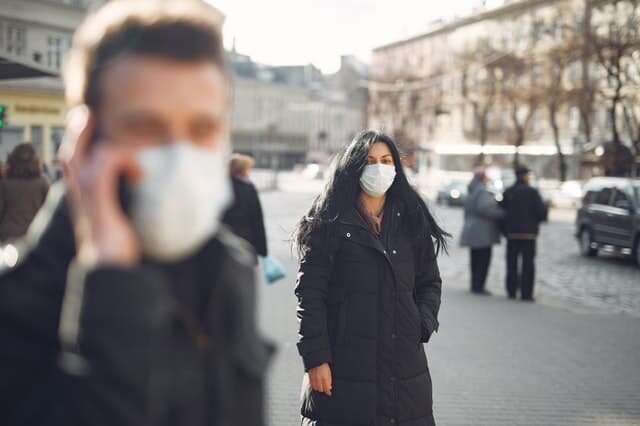There’s no doubt that depression has been rising in the U.S. due to the pandemic.
A study conducted by researchers at Boston University and published in JAMA Network Open found that 1 out of every 4 Americans is experiencing depression symptoms. Also, before the Covid-19 crisis 8.5% of Americans struggled with depression. Now it is 27.8%!
Depression was already a problem for many people. However, the pandemic has either worsened the problem or has been the catalyst for more people to experience depression symptoms for the first time. If either issue sounds like you, there are ways to cope.
Here are four strategies to use in coping with depression during the pandemic.
1. Create Structure for Yourself
The pandemic upended how we schedule and structure our lives. If you were working, then most likely you had a schedule that included:
A wake-up routine
Getting ready for the day
Heading to work
Spending 8 hours or so at your job
Returning home
If you were retired, then you had more free time. Yet, it was filled with activities such as going to the fitness center, attending book club, etc.
But now a lot of the things we used to do look completely different. Either way, you now need to rebuild your daily routine. If working from home, plan out time each day for yourself. That way you can unplug from all of those video conference calls.
If you are not working, consider how you can adapt the activities you used to do to this new world. For instance, now book club can be held online versus in person.
2. Declutter Your Living Space
Because we are all spending more time at home, now is the perfect time to clean out the clutter. It doesn’t help your depression when you are living in a space filled with junk or that is untidy. To avoid this problem, you can:
Separate stuff into donation, recycling, or throw-away piles.
Work on each room one at a time to avoid overwhelm.
Remind yourself how your old stuff will help someone else.
As you clear out clutter and clean up, you can enhance your living space to promote better mental health. Allow natural light to come in through the windows. Paint a room in warm, earthy tones. Hang artwork or photographs. A home that supports your mental health will go a long way towards coping with depression.
3. Have a Daily Fun Goal
We set goals all the time, so why not for fun? For instance, if you enjoy working your garden, then make it a priority to spend time in the flower beds and vegetable rows. Or, if your passion is music, set an objective to play the guitar every day. Doing this serves two purposes. They include:
Providing an outlet in which you focus your attention and be more present
Something to look forward to each day that’s fun and enjoyable
One problem with both the pandemic and depression is that each day feels just like the other. Creating a daily fun goal breaks up the monotony so you can pursue your passions.
4. Take Time to Talk
One of the biggest problems with the pandemic is that it has caused us to isolate from one another. That includes friends and family. However, isolation also means you are less likely to seek help. But if you are struggling with depression then professional help is exactly what you need.
Therapy has always been an important part of the solution to treating depression. It allows you the opportunity to get what’s troubling you off your chest, and to find workable solutions for depression. If you are struggling, then it’s critical that you get the help you need.
Although the pandemic has changed many things about our lives, the basics for coping with depression remain the same. Creating structure, staying organized, finding meaning, and talking to others are all still important for dealing with depression. Also, whether you have had depression before the pandemic or you just started noticing the symptoms, reach out for professional help and depression counseling.
